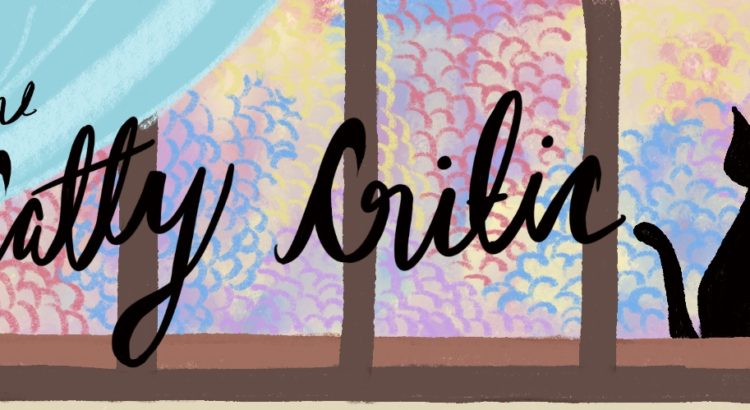I wrote an article titled “Here’s Why Rupi Kaur’s Poetry Sucks” over a year ago which gained an overwhelming readership (you can find the old post here). There were verbal battles breaking out in the comments, people purposefully downvoting others’ votes a couple hundred times, and someone even posted the link in the reddit thread in which someone commented, “First thing I read of Fareah Fysudeen” (I really wish it weren’t the first thing). Frankly, I’m quite embarrassed by this attention, because I hardly agree with my past self. I can’t be proud of an article whose contents I no longer uphold. I can still see myself writing it: slouched in a study cubby typing away between classes, buried in the Hatcher stacks of the University of Michigan, in my sophomore year of undergrad, believing that I finally had access to the great, profound knowledge of the world. I’m here to reflect on that past article and what it means to me now, over a year later, a soon-to-be graduate, and hopefully a more introspective and worldly individual.
In most ways, my opinion about Rupi Kaur’s poetry itself hasn’t changed. I still think she is the crowned champion of “fake deep” poetry that finds its home in niches on Tumblr and Instagram. I still think her clever use of enjambment and thematic seriousness adds to the illusion of depth to her poems. But in the article, I draw a much more dangerous parallel argument in order to prove (with apparent exacting mania) that the reason Rupi Kaur’s poetry is bad is because it doesn’t fit the criteria of “good poetry.” I say it doesn’t fit into a “larger poetic narrative.” I say that there is a definite dichotomy between good and bad poetry, and that this dichotomy exists as an objective reality. My exact words, if you will: “If all literature was subjective, then, there would be no point to literary criticism and an entire discipline dedicated to the study of good literature. Poetry is not subjective. There is good literature and there is bad literature. Your experience of either can be subjective— as in, you can like bad literature and hate good literature, but your preferences don’t change the fact that it’s bad or good.”
In many ways, re-reading this series of sentences was especially painful to me, because not only do I no longer hold that opinion of art and literature, but because it consigns to a standard of artistic excellence determined by the English literary canon. The literary canon doesn’t exist to be the sole arbiter of artistic value (whether it should exist at all is also worth considering). This isn’t so much a question of whether or not Rupi Kaur’s poetry is good, per se. This is a question about how we interpret poetry, what baggage and preconceptions of art we are bringing to the table. It’s a question about what system of rationality we adopt. And the more we adopt systems of rationality that have historically and continue to marginalize the voices of women and non-white people, the more we perpetuate whiteness— or any other arbitrary marker of artistic merit— as the standard of good art.
I’m reflecting on why it was so important to me that I uphold the canon in that article. Why was it so crucial to me that I maintain proximity to this historically stuffy and pretentious group of authors and titles that aided in constructing the Western empire? The thing is, I think I wanted the stability of being able to determine whether something was good or not, because without that system of rationality, I feared that there would be a lack of real power or worth to my opinions, as a non-white person. Can you see the problem? The dominant culture is so hegemonizing that I feared its absence means I am stupid. Instead of repudiating a system that made me feel stupid in the first place, I tried to wholeheartedly accept it in order to be part of that dominant cultural frame of reference. In some way, I was playing that historical role of siding with the bully in order to gain agency for myself… What I didn’t know is that there is so much more power in letting go of what does not serve you.
I don’t like Rupi Kaur’s poetry. But the reason I don’t like it has changed. Whoever finds power, love, creativity, inspiration, vitality in her poetry— who am I to tell them that it’s not there? Find the art that moves you, and let it move you. There is no greater power than constructing the world for yourself.



Leave a Reply
4 Comments on "The Catty Critic: Reflecting on Rupi Kaur & Artistic Merit"
I’m glad you came to this conclusion. I found your initial review and respected your opinion til I got to that section. It was also painful to see a brown person tear down another brown person, in a field that like many is dictated by the standards of white people.
Ultimately, writing is a form of expression, some people will resonate and sometimes they won’t. And that’s ok. Why knock someone down when they clearly gained some recognition and popularity for their work. She’s speaking her truth and that’s impressive in of itself.
No, you were right
Oooh, I relate strongly to this reflection. Being an art student, I went from thinking any art I liked to thinking most art was awful because it hadn’t been made a certain way. Only now do I realized there are too many shades of nuance to make big sweeping statements. It’s really reassuring to read through someone else having a similar revelation.
I appreciate this reflection, Fareah. Seeing the passion in people’s comments on your earlier post offered an interesting insight to how personally people take art. I appreciate that you’ve taken the time to consider different perspectives and reflect on your own, even though you’re still not a fan.